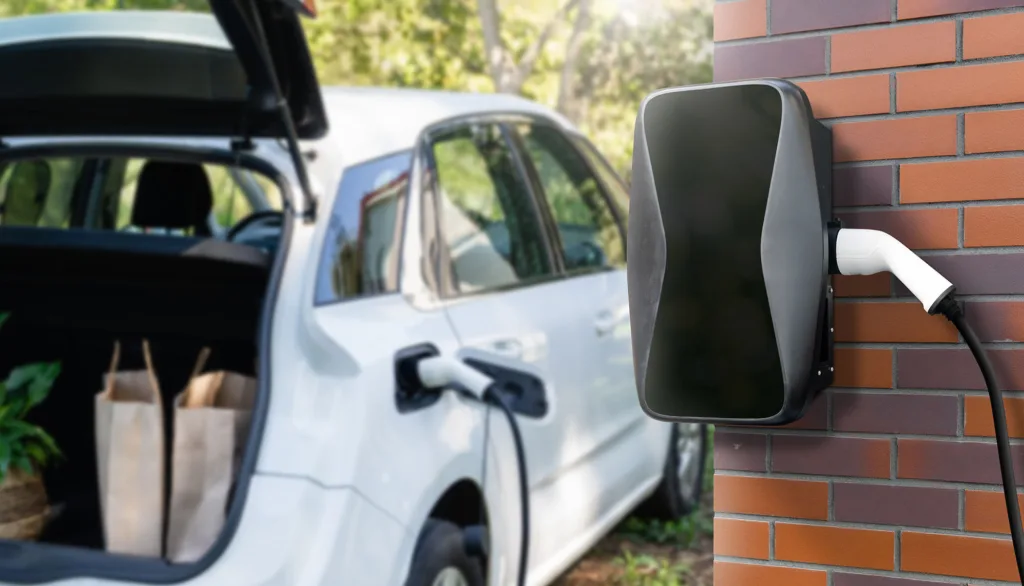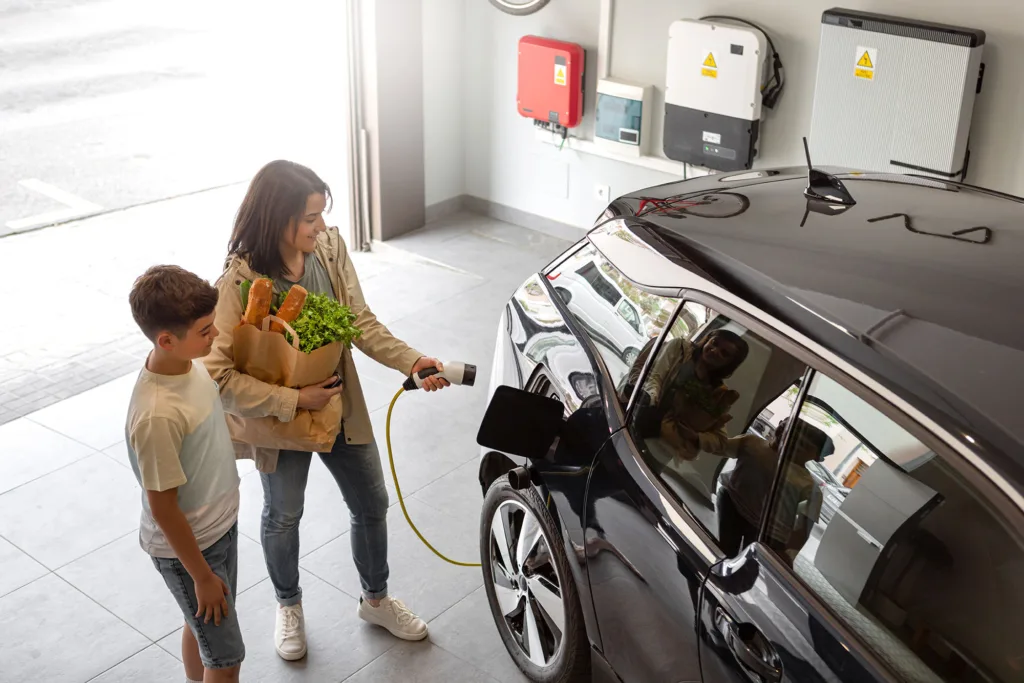Owning an electric vehicle (EV) is a step towards a cleaner, more cost-effective future. However, without a proper home charging setup, running an EV can be inconvenient. With 85% of EV charging done at home, installing a reliable EV charger ensures lower costs, increased convenience, and long-term efficiency.
The UK market offers a variety of home EV chargers, ranging from basic models to advanced smart chargers that integrate with solar panels and off-peak tariffs. However, selecting the right one isn’t as simple as picking the fastest or cheapest option. You need to consider charging speed, installation requirements, compatibility, and cost-saving features.
This comprehensive guide will help you understand charging speeds, smart features, installation tips, and cost-saving strategies, ensuring you choose the best home EV charger for your needs.
Why Installing a Home EV Charger is a Smart Move
Public EV charging stations are expanding across the UK, but home charging remains the most practical solution for EV owners. Here’s why:
1. Home Charging is More Affordable
Charging an EV at home is significantly cheaper than relying on public chargers. The average cost per kWh at home is 24.5p, compared to 74p per kWh for public rapid chargers.
- A full charge (60kWh battery) costs around £13 at home, compared to £26 at public fast chargers.
- With off-peak energy tariffs, home charging costs can drop even further.
2. Convenient and Time-Saving
Charging at home eliminates the need to queue at public charging stations. Simply plug in your car overnight, and wake up to a fully charged battery.
3. Government Grants to Reduce Costs
The UK government’s EV Chargepoint Grant provides up to £350 towards the installation of home EV chargers, making them more affordable.
4. Adds Value to Your Property
Homes with installed EV chargers are more appealing to future buyers, particularly as EV adoption continues to rise in the UK.
Key Factors to Consider When Choosing a Home EV Charger
Charging Speed and Power Output
Home EV chargers come in different power levels, impacting how quickly your vehicle charges:
Charger Type | Power Output | Charging Time | Best For |
Slow Charger | 3.6kW | ~15 miles per hour of charge | Plug-in hybrids |
Standard Home Charger | 7kW | 6-8 hours for a full charge | Most home installations |
Fast Home Charger | 22kW | 2-4 hours, requires three-phase power | Homes with upgraded electrical systems |
Most UK homes have single-phase electricity, making 7kW chargers the most practical choice.
Tethered vs Untethered Chargers
- Tethered Chargers – Have a built-in cable, offering plug-and-go convenience but limited flexibility.
- Untethered Chargers – Allow you to swap charging cables, making them more adaptable for different vehicles.
A tethered charger is ideal for ease of use, while untethered chargers offer better future-proofing.
Smart Features That Help Save Money
Many modern chargers include smart technology, helping you reduce charging costs and optimise energy usage:
- Scheduled Charging – Charge during off-peak hours, when electricity rates are lower.
- Solar Integration – Some chargers allow direct solar charging, using renewable energy to reduce electricity costs.
- Load Balancing – Prevents overloading your home’s power supply, automatically adjusting the charger’s output.
- Wi-Fi & App Control – Monitor energy usage, start/stop charging remotely, and track charging history.
Smart chargers can reduce energy bills by up to 30% when paired with time-of-use tariffs.
Weather Resistance and Durability
For outdoor installations, your charger should have:
- IP65 or higher for waterproofing.
- IK10 impact rating for durability against accidental damage.

The Best Home EV Chargers in the UK
Here are some of the top-rated home EV chargers in the UK:
- Zappi (by MyEnergi) – Best for homes with solar panels, offering solar energy integration.
- Wallbox Pulsar Plus – Compact and Wi-Fi-enabled, ideal for smart energy management.
- Tesla Wall Connector – Specifically designed for Tesla owners, offering fast home charging.
- EO Mini Pro 2 – One of the smallest smart chargers, great for homes with limited space.
The best choice depends on your budget, vehicle type, and desired smart features.
Want to see how these chargers perform in real-world installations? Check out our EV charging efficiency projects to see how we’ve installed them successfully.
Installation Considerations for Home EV Chargers
Electrical Requirements and Safety
Before installing a charger, ensure your home’s electrical system meets the following:
- Dedicated circuit with an RCBO (Residual Current Breaker with Overcurrent Protection).
- Earthing protection, often requiring an earth rod.
- Load balancing to prevent overloading your home’s electrical system.
A certified installer is legally required for all UK home EV chargers. Our home EV charger installation service ensures professional setup and compliance.
Best Locations to Install Your EV Charger
- Garage or Driveway – Secure, easy-to-access locations.
- Wall-Mounted vs Standalone – Wall-mounted chargers save space, while freestanding chargers work well in open driveways.
- Cable Length Considerations – Ensure the cable comfortably reaches your car’s charging port.
How Much Does EV Charger Installation Cost?
Cost Factor | Estimated Cost |
7kW Charger Unit | £500 – £1,000 |
Installation Costs | £300 – £600 |
Additional Electrical Work | £200 – £500 (if required) |
The EV Chargepoint Grant may reduce installation costs by £350.
How to Reduce Your Home Charging Costs
- Use Off-Peak Tariffs – Many energy providers offer discounted electricity rates during off-peak hours.
- Invest in a Smart Charger – Automate charging schedules to reduce energy costs.
- Solar Panel Integration – Use solar power to charge your EV for free.
Frequently Asked Questions
1. What is the average cost of a home EV charger in the UK?
A 7kW home charger typically costs between £500 – £1,000, depending on the brand and features. Installation costs range from £300 – £600, with additional electrical work adding £200 – £500 if required. The EV Chargepoint Grant can help reduce costs by up to £350.
2. How long does a home charger take to fully charge an EV?
The charging time depends on the power output:
- 3.6kW chargers take 12+ hours for a full charge.
- 7kW chargers (most common) take around 6-8 hours.
- 22kW chargers (for homes with three-phase power) can fully charge an EV in 2-4 hours.
3. Can I install an EV charger myself?
No, UK regulations require a certified electrician to install home EV chargers. This ensures the charger is safe, meets electrical standards, and is eligible for government grants.
Conclusion
Installing a home EV charger is the best way to make EV ownership more convenient and cost-effective. By selecting the right charger, considering smart features, and planning professional installation, you’ll enjoy cheaper, faster, and more efficient charging.
Thinking about installing an EV charger? Get in touch today!










